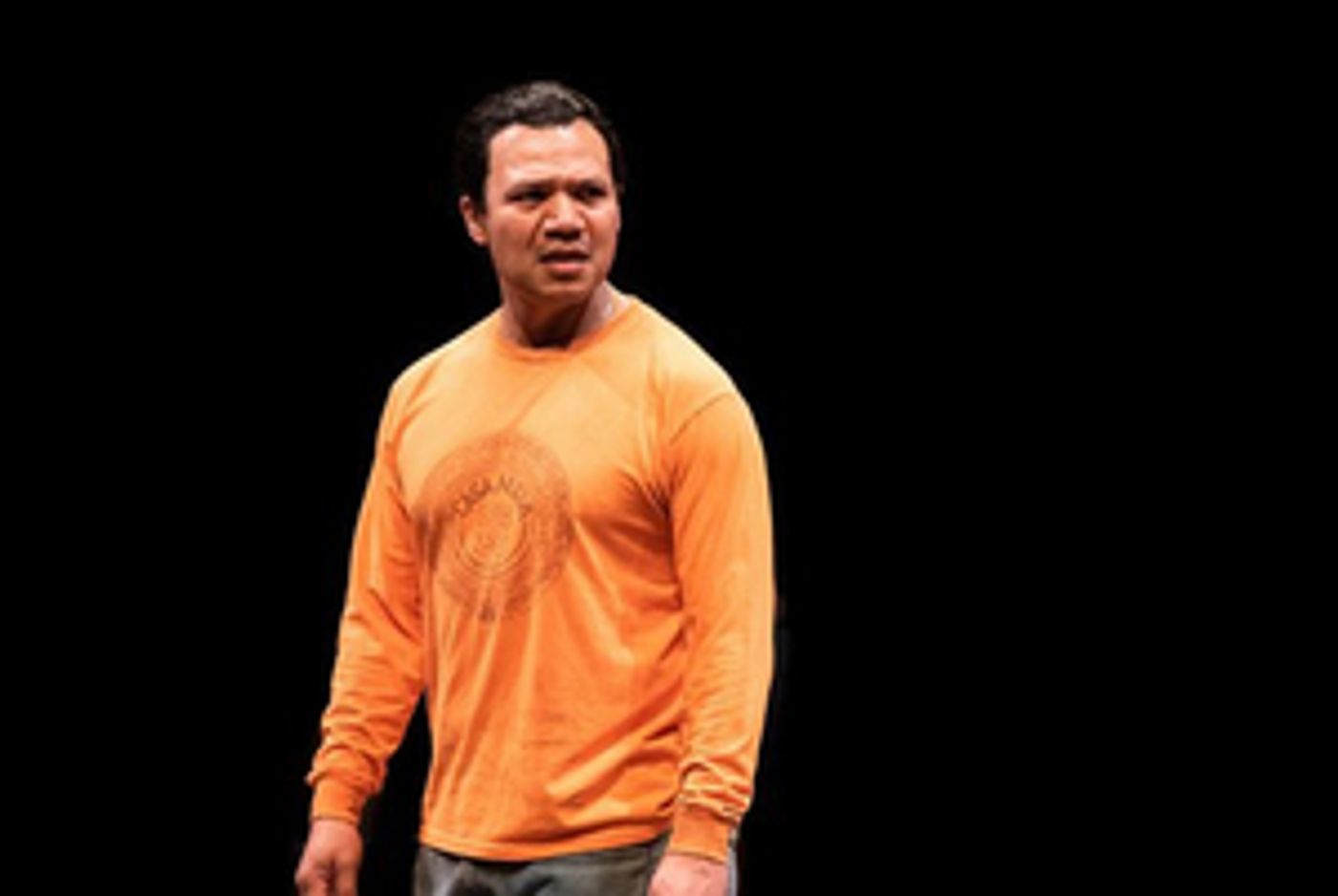Interview: Tony Sancho of MOTHER ROAD at Arena Stage

Few families are as identifiable with certain moments in American history as the Joads are with the Great Depression. The family at the epicenter of John Steinbeck's groundbreaking novel The Grapes of Wrath forever captured the nation's heart in 1940 with a celebrated film version starring Henry Fonda. Now, Arena Stage is continuing the Joad family story with Mother Road, a play in which actor Tony Sancho finds himself carrying on the legacy of these beloved characters whose story has suddenly found renewed relevance eight decades later.
"Like The Grapes of Wrath, it [Mother Road] is a story about family, about doing right by people, about dealing with the troubles of the past, honoring that past, and hopefully coming out the other side a better human being," says Sancho.
The Grapes of Wrath follows the Joad family as they migrate from Oklahoma to California after the Dust Bowl ruins their crops, bankrupting their farm. Not only does it poignantly capture life in the depression-era Midwest, but more importantly it passionately presents one family's struggle for the all illusive American dream.
"Mother Road picks up three generations after the book takes place and we find the last of the Joad's of Oklahoma in search of a blood relative to pass his farm to," says Sancho. "What he doesn't know is his remaining kin is a Mexican-American day laborer living in California."
Sancho adds, "If an audience member knows either the book or the film, they may see that the play shares a heart and soul with Steinbeck's work. Mother Road is a journey, and along the way the audience witnesses these two characters, who seem so different from each other and to each other, discover that they share more in common than they could have ever imagined, and that the trauma that the Joad's endured, lives within them both."
In the play, Sancho portrays Martín Jodes. He's the great grandson of Tom Joad, the Henry Fonda character in the movie, who used to be a migrant worker but is now searching for work.
"Like his great grandfather, his moral compass is very clear and matter of fact. However, he is definitely a man in search of his calling. When we meet him at the top of the play he has no blood relatives. He is a man struggling with the traumas of his past, and the devil's in his blood," says Sancho.
Having read The Grapes of Wrath, the character of Martín and the play are very close to Sancho's heart. The story may be eight decades old, but its message is as relevant as ever.
"Speaking for myself, as a man of color, it is a rare opportunity to play a part that is so similar to me. Often I have to play criminals and thugs, crooked cops or alcoholic fathers. I am the son of a working class man who was in construction, and my mother worked her way up from the assembly line to a manager's position. My grandfather was in construction as well and my great grandfather was a farmer in southern Texas. So I am pulling a lot from personal experience, from working on the farm with my mother and grandmother, to summers where my father dragged me to his job sites building houses," says Sancho.
The dignity of work, exploitation of migrant workers, and the search for a better life amongst an ever-changing economy were at the center of The Grapes of Wrath. For better or worse, those same themes have remained a constant in our political and societal conversations. It's a lesson playwright Octavio Solis learned writing Mother Road, one that connected him back to Steinbeck's novel and which informed Sancho's character.
"Martín is based on a man that Octavio met when he was collecting stories on a road trip he was taking that was commissioned by the National Steinbeck Center. While at the Arvin Migrant Center in California, out of all the people Octavio said he interviewed, none of them had ever read The Grapes of Wrath, except this man. And not only had he read it but he could recite passages from the book. And when Octavio asked him why this book was so important to him, he said because he is the new Tom Joad, and that the migrant worker there at the camp were the new Okies," says Sancho."
Like the Joad family, Mother Road has been crisscrossing the country. Sancho's involvement with the play goes back to a 2015 reading at Chicago's DePaul University. He then performed the play at the Oregon Shakespeare Festival and is now making his Arena Stage debut with the piece.
Given his deep emotional and personal connection with the character, has his interpretation of Martín changed?
"Transferring the show from a proscenium with a thrust to a stage [Fichandler Stage] in the round has been a growing experience. The intimacy of Arena Stage gives an artist room to share the nuance with an audience that you can't do on a stage 20 rows deep, which is so exciting. The Martín here is definitely a Martín 2.0. He has to be," says Sancho.
The impact and influence of Steinbeck's original story cannot be overstated. Eighty years after these characters were introduced; their emotional connection to legions of readers and moviegoers remains strong. So does their message of hope.
"I hope audiences take away a sense of hope for the America we could be. Like The Grapes of Wrath, it [Mother Road] is a story about family, about doing right by people, about dealing with the troubles of the past, honoring that past, and hopefully coming out the other side a better human being," says Sancho.
Mother Road runs thru March 8th at Arena Stage - 1101 6th St SW, Washington, DC 20024. For ticket's please call (202) 488-3300 or click here.
Photo: Tony Sancho. Credit: Margot Schulman.
Videos
